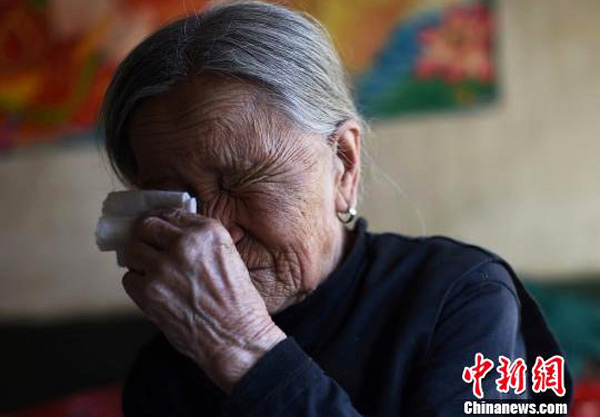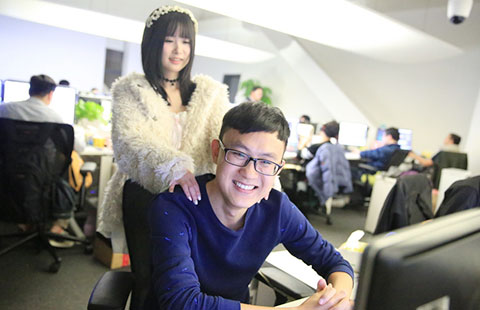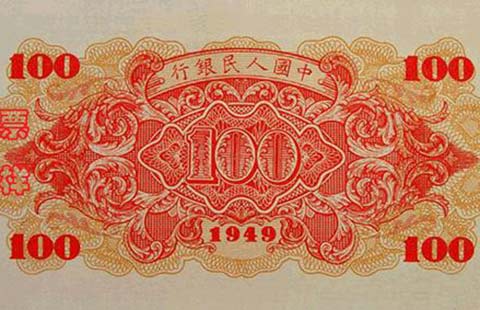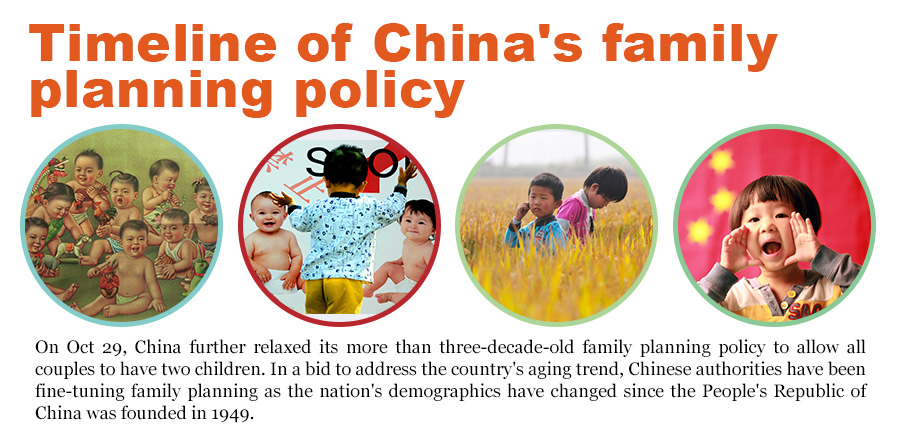Last Chinese 'comfort woman' who filed suit against Japan dies
By Yao Yao (chinadaily.com.cn) Updated: 2015-11-13 17:22 |
|
Zhang Xiantu wipes tears with a handkerchief at her home in Xiyanxi village, Yangquan city, North China's Shanxi province. [Photo/chinanews.com] |
The last living "comfort woman" of the 16 Chinese who sued Japan since the 1990s died in North China's Shanxi province without receiving a sought-after apology from the Japanese government, Shanxi Evening News reported on Friday.
Zhang Xiantu, 89, had been fighting for an apology from the Japanese government since 2000 when she went to Japan for the first time to testify as a victim and witness of Chinese women who were sexually enslaved by Japanese soldiers during World War II.
"At her last moment, Zhang still told her sons to keep on suing the Japanese government. Dying without getting an apology is a shame for the old woman," said Zhang Shuangbing, who has long been devoted to investigating and interviewing comfort women in North China's Shanxi province.
During an interview in May, Zhang recalled the day Japanese soldiers kidnapped her. "It was only on the second day of the lunar new year in 1942 that I was taken away by the Japanese soldiers, who broke into my house," she told reporters with The Beijing News.
Seizing the reporter's hand, Zhang said, "Life in those days was destroyed by the Japanese", as she remembered she was forced to be a comfort woman for more than 20 days. She recalled how she suffered serious gynecological diseases before she was ransomed, but she found it difficult to express herself fluently as it was too painful to remember much.
At that time, Zhang's son, Guo Aiming, told a reporter it had long been his mother's wish to accept an apology from the Japanese government since she didn't get one in 2000.
In the 2000 lawsuit against the Japanese government asking for an apology and compensation, Zhang didn't get the expected result, but did get an acknowledgement from a relevant Japanese authority that Japanese soldiers did do harm to Chinese women during World War II.
Chinese women weren't the only females used as sex slaves. "Comfort women" were used by Japanese soldiers in South Korea, the Philippines, Indonesia and other countries.
South Korean President Park Geun-hye said the issue of "comfort women" was "the biggest obstacle" to South Korea and Japan's effort to improve their relationship before the first formal meeting between her and Japan's Shinzo Abe on Nov 2.
- High-speed train for extremely low temperatures wins approval
- 110 firms face penalties for failing to reduce pollution
- Charity law will encourage donors, experts say
- New town plan advances in Beijing
- 'Solid evidence' will be sent to break US fugitive gridlock
- Survey reveals romantic divide between North and South China
- High-ranking officials under graft probe
- Shanghai deputy mayor probed on suspicion of discipline violation
- Dirty air will be the norm in Beijing for five days
- 90m more to be eligible for 2nd child







